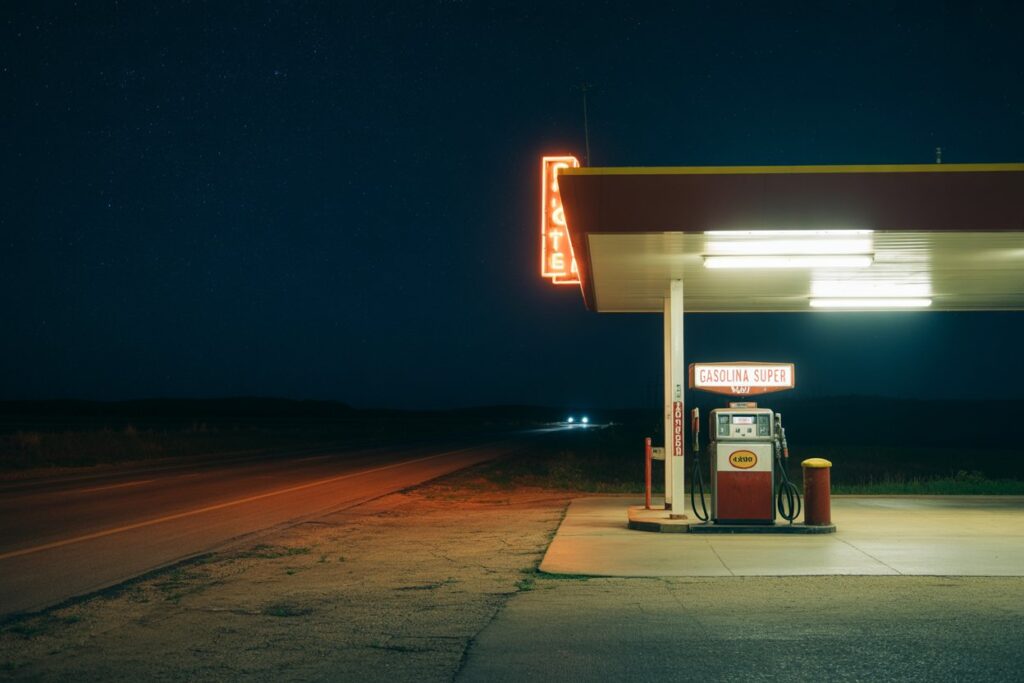Gas stations might not disappear overnight, but the way we fuel our cars is on the verge of a total makeover. In the next decade, we could be saying goodbye to old-school pumps and hello to tech that sounds like it belongs in a sci-fi movie. From batteries to biofuels, the future of fuel is shaping up to be cleaner, smarter, and possibly cheaper — if we are lucky. Here is what might be powering your daily commute in 2035.
Electric Batteries Take Over the Spotlight
Electric cars are already everywhere, and in ten years, they could dominate the market. Batteries are getting lighter, faster to charge, and able to take you farther on a single plug-in. Imagine topping up at home overnight instead of standing in the cold at a gas pump.
Hydrogen Fuel Cells Gain Traction
Hydrogen is like the underdog of alternative fuels — quietly efficient and emitting only water vapor. As infrastructure catches up, fuel cell cars could become mainstream, especially for people who want quick refueling without waiting for a charge. The best part? Zero tailpipe emissions.
Synthetic Fuels Offer a Bridge for Gas Engines
Synthetic fuels, made from renewable sources, could keep existing gas engines alive without wrecking the planet. They work in regular engines but produce fewer emissions, making them a sneaky solution for people not ready to go fully electric. Think of them as gas’s eco-friendly cousin.
Solar Panels Start Pulling Their Weight
Solar-powered cars sound wild, but they are closer than you think. Some automakers are already testing vehicles with roof panels that trickle-charge the battery as you drive. It will not replace wall charging yet, but every bit of free energy helps.
Biofuels Made From Everyday Waste
Imagine powering your car with leftovers — well, not literally last night’s pizza, but organic waste. Biofuels made from plants and agricultural byproducts could become a cost-effective, renewable option. They are especially promising for trucks and larger vehicles that burn through fuel faster.
Ultra-Fast Charging Becomes the New Normal
Waiting an hour to charge? Forget it. Ten years from now, ultra-fast chargers could top up your battery in the time it takes to grab coffee. Advances in battery tech and charging stations will make road trips way less stressful.
Hybrid Systems Get Smarter and More Efficient
Hybrids will not vanish; they will evolve. Expect cars that switch seamlessly between electric and fuel power, squeezing every drop of efficiency out of both systems. Perfect for people who want green driving without fully committing to plugs or pumps.
Infrastructure Adapts to Multiple Fuel Types
Future fueling stations may not just sell gas — they will offer electric charging, hydrogen refills, and maybe even synthetic fuels side by side. Think of it as a fuel buffet for every kind of driver. The challenge? Building it all fast enough to keep up with demand.
Energy Storage Becomes Part of Your Home
Your car will not just use energy — it will store and share it. Vehicle-to-home systems will let you power your house during outages or sell energy back to the grid. Suddenly, your driveway becomes a mini power plant.
The Shift Toward Cleaner Energy Sources
Whatever fuel wins, one thing is certain: the future is cleaner. Governments and automakers are racing to cut emissions, and in ten years, gas-powered-only cars could feel as outdated as flip phones. Cleaner air and cheaper running costs? Hard to argue with that future.

